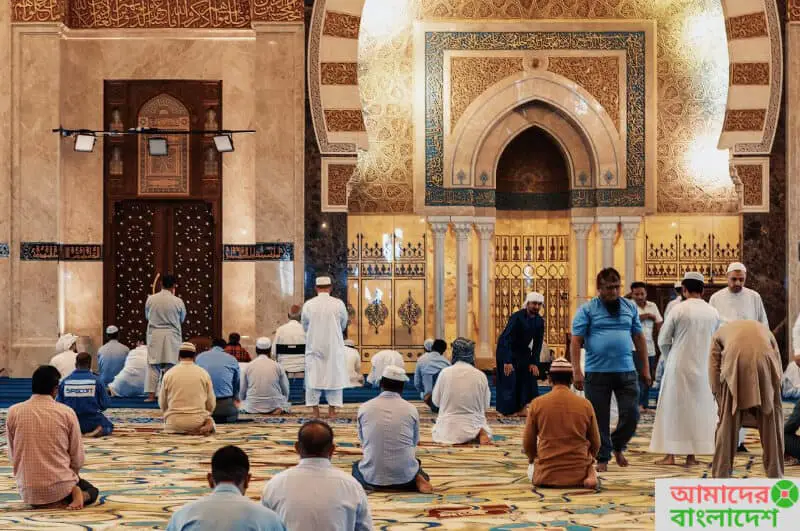Bangladesh and Pakistan are two Muslim majority countries of South Asia. After the end of the British ruling, both Bangladesh and Pakistan have formed a single state for 24 years. Because of the violent crackdown by the Pakistan Army, the then East Pakistan separates from West Pakistan and emerged as an independent country named Bangladesh. The liberation war of Bangladesh took place in 1971 and Bangladesh becomes independent on 16th December 1971. However, Pakistan recognized Bangladesh in 1974 after pressure from across the Muslim world.
Religion In Bangladesh
Bangladesh is constitutionally a secular state and secularism is one of the four fundamental principles of the Constitution of Bangladesh. Islam is the state religion of Bangladesh but Bangladesh is mostly governed by secular laws. The constitution of Bangladesh states that “the State shall ensure equal status and equal right in the practice of the Hindu, Buddhist, Christian and other religions.” Bangladeshi constitution calls for equal rights to all its citizens irrespective of their religious differences and also bans discrimination because of religion on various platforms. So Bangladesh is a secular Muslim-majority nation where conversion from one religion to another is accepted and it is legalized by law. The four major religion of Bangladesh is Islam, Hinduism, Christianity, and Buddhism.
Islam
More than 90 percent of people in Bangladesh are Muslim. It means over 150 million people in Bangladesh are followers of Islam. In fact, Bangladesh is the 4th largest Muslim-populated country in the world. There are eight divisions in Bangladesh and Muslims are the predominant community of every division. Most of the Muslims in Bangladesh are Bengali Muslims though there are also a few Bihari Muslims who live in Bangladesh. Most Muslims in Bangladesh are Sunnis, but there is also some small Shia community living in Bangladesh. In Bangladesh, the Muslim communities celebrate Eid ul-Fitr, Eid ul-Adha, Muharram, Milad un Nabi, Shab-e-Barat, and Chand Raat all across the country with much elaboration and greatness. One of the largest and most notable congregations of Muslims, the annual Bishwa Ijtema is also held in Bangladesh.
Hinduism
Hinduism is the second-largest religion in Bangladesh after Islam. In Bangladesh, around 12.49 million people identify themselves as Hindus and this number makes up about 8.5 percent of the total population of Bangladesh. In terms of population, Bangladesh is the third-largest Hindu populated country in the world after India and Nepal. Large numbers of Hindus in Bangladesh are Bengali Hindus though a distinct Hindu population also exists among the indigenous tribes like Garo, Khasi, Jaintia, Santhal, Bishnupriya Manipuri, Tripuri, Munda, Oraon, Dhanuk, etc. Hindus live evenly throughout all regions of Bangladesh. The Hindu communities celebrate festivals like Durga Puja, Rath Yatra, Janmashtami, etc.
Buddhism
The Buddhists from about 0.6 percent of the population of Bangladesh. It means about 1,000,000 people in Bangladesh follow Buddhism. Most of the followers of Buddhism in Bangladesh live in the Chittagong division. However, there are few Buddhists who live in other parts of Bangladesh, such as Comilla, Mymensingh, Rangpur, Sylhet, etc. The majority of Bangladeshi Buddhists live in the southeastern region, especially in the Chittagong Hill Tracts, Chittagong, and Comilla districts. Buddhists who live in the Chittagong Hill Tracts belong to the Chakma, Marma, Mru, Khumi, Bawm, Chak, Kuki, Murang, Tanchangya, and Khiang tribes. Buddha Purnima is the biggest festival in Buddhism.
Christianity
In terms of the number of followers, Christianity is the 4th religion in Bangladesh. Christians account for 0.3% of the nation’s population which is about 740,000 people. Christianity arrived in Bangladesh during the late sixteenth to early seventeenth centuries AD, through the Portuguese traders and missionaries. In the Bengali Christians, most people are Roman Catholicism followers. The rest of the Christian people are followers of Baptism.
Religion In Pakistan
Pakistan is the World’s second-largest Islamic country of the world in terms of population. The state religion of Pakistan is Islam. 96.28% of the population of Pakistan follows Islam but freedom of religion is guaranteed by the Pakistani constitution. The remaining 3.72% of people practice Hinduism, Christianity, Ahmadiyya, Sikhism, and other religions.
Islam
Pakistan has the second-largest number of Muslims in the world after Indonesia. The majority of Muslims in Pakistan are Sunni. About 10-20% of Muslims in Pakistan are Shia. Most of the Pakistani Sunni Muslims belong to the Hanafi Islamic school of thought while there is a small number of Muslims who belong to the Hanbali School. On the other hand, the Shia Muslims of Pakistan belong to the Twelver branch.
Hinduism
Hinduism is the second-largest religion in Pakistan. In fact, Pakistan is the 5th largest country in terms of population. You will find Hindu followers in all provinces of Pakistan but are mostly concentrated in Sindh. About 93% of Hindu live in Sindh, 5% live in Punjab and nearly 2% live in Balochistan. The Hindu communities in Pakistan include:
1. Tamil Hindus
2. Kalasha people
3. Nanakpanthi
4. Valmiki Hindus
5. Punjabi Hindus
Christianity
About 1.6% of the people of Pakistan are followers of Christianity. The Christian community mostly consists of Punjabis who converted during the British colonial era. Therefore, it is the third-largest religion in Pakistan. Half of Pakistani Christians are Catholic and the other half are Protestant.
Ahmadiyya
It is estimated that about 0.22% of Pakistan’s population is Ahmadi. In fact, Pakistan has the most number of Ahmadis in the world. Pakistan was the global headquarters of the Ahmadiyya Community before they were moved to England. The Ahmadiyya followers believe that Muhammad is the best and the last law bearing prophet and Mirza Ghulam Ahmad as the Messiah of Muslims.
Sikhism
There are a number of Sikhs who live in Pakistan and the exact number might be around 20,000. Sikhism has an extensive heritage and history in Pakistan. Most of the Sikhs live in the province of Punjab. Punjab is the place where this religion is originated. The number of Sikhs in Pakistan is increasing because many Sikhs from Afghanistan are migrating to Pakistan.

